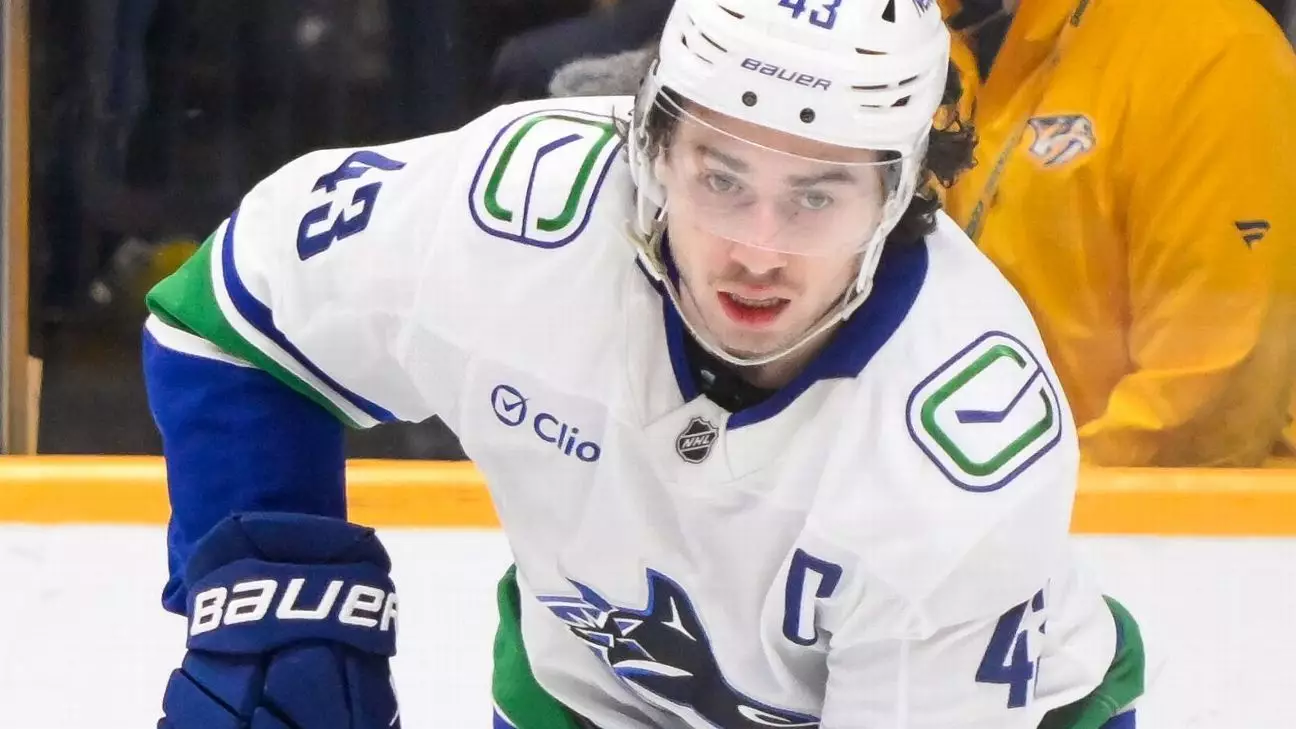The hockey world was disparagingly shaken when news broke that Quinn Hughes, the celebrated defenseman for the Vancouver Canucks and a pivotal player for Team USA, will not participate in the upcoming 4 Nations Face-Off due to a lower-body injury. Vancouver’s management confirmed the news on Sunday, revealing that Hughes has been sidelined for four consecutive games since January 31. His absence represents not only a significant loss for the Canucks but also for American hopes in the international tournament.
Hughes’ predicament stems from a careful decision based on medical advice, as noted by Vancouver General Manager Patrick Alvin. The emphasis on player health cannot be overstated, and Hughes, recognized for his acute awareness of his physical condition, serves as a reminder that even the most talented athletes must prioritize recovery. The fact that Hughes, the reigning Norris Trophy winner, has been out highlights the fragility of player health in a sport as physically demanding as hockey.
In light of Hughes’ absence, the Ottawa Senators’ Jake Sanderson has been chosen as his replacement. This marks a significant opportunity for the 22-year-old defenseman, who has demonstrated impressive skills in his three seasons in the NHL, garnering 35 points in 55 games. Sanderson’s addition to the roster not only showcases the depth of talent available to Team USA but also reflects a transition phase within American hockey as it harnesses emerging talent.
Sanderson joins a notable lineup of defensive stalwarts, including Adam Fox, Charlie McAvoy, and Zach Werenski. Collectively, they form a robust defensive unit tasked with emerging victorious in what has been quintessenced as a “best on best” tournament. The stakes are high, especially with America’s young hockey pros finally getting a shot to shine together on an international stage.
The 4 Nations Face-Off is designed to elevate the competitiveness of hockey at an elite level, pitting the United States against formidable opponents such as Finland. For Hughes, who should have been a cornerstone of the American squad, not being able to compete is particularly disappointing. He notched an astounding 59 points in just 47 games this season, making him arguably the most valuable player on his team.
The tournament is poised to showcase the strengths and weaknesses of both each national team and the new generation of talent emerging within U.S. hockey. Despite the disappointment of Hughes’ departure, other young players like his brother Jack, who plays for the New Jersey Devils, could use this tournament as a platform for growth and maturation in their international careers.
As Hughes recuperates, the focus must remain on the upcoming games and the future of the Canucks and Team USA. Coach Rick Tocchet’s remarks allude to an unquantified complexity regarding Hughes’ potential return, indicating the uncertainty that accompanies athletic injuries. Hughes’ situation not only serves as an immediate challenge for Team USA but also illustrates a wider narrative within the sport—to balance the drive for success against the inescapable reality of player health.
Ultimately, the 4 Nations Face-Off might yield unexpected outcomes, but Hughes’ absence underscores a pivotal lesson in sports: the need for caution and recovery—not just for the elite, but as a fundamental tenet of professional athletics.


Leave a Reply